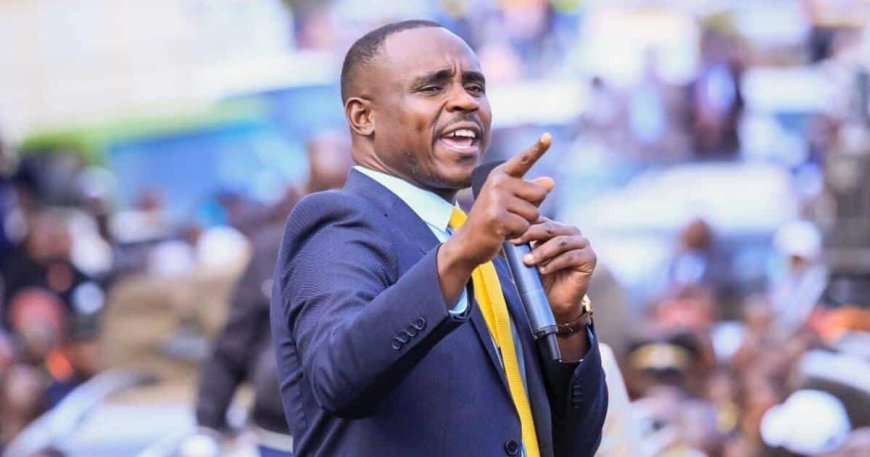Malala Loses In Bid To Reclaim UDA Secretary General Post
The court confirmed that the gazette notice formalising Malala’s removal was valid and legally binding.

Cleophas Malala has suffered a setback after the High Court upheld his dismissal as the United Democratic Alliance (UDA) Secretary General.
Justice Bahat Mwamuye, in a ruling delivered on Monday, April 28, overturned the earlier decision by the Political Parties Disputes Tribunal (PPDT), which had briefly reinstated Malala to his position.
The court confirmed that the gazette notice formalising Malala’s removal was valid and legally binding.
"The 1st respondent’s appeal before the PPDT is hereby terminated and shall not proceed before the tribunal. Any orders previously issued in favour of the respondent are hereby vacated," the ruling stated.

President Willliam Ruto (middle) alongside former Deputy President Rigathi Gachagua and former UDA SG Cleophas Malala at the party headquarters on APRIL 2, 2024. /CLEOPHAS MALALA
The High Court also nullified the PPDT proceedings, shutting down Malala’s ability to contest his removal through that channel — another major blow to the former Secretary General.
The court ruling also solidified Hassan Omar’s appointment as the official UDA Secretary General, firmly locking in the recent leadership changes within the ruling party.
In October last year, Malala—then still Secretary General—tried to fight his removal by appealing to a tribunal, which temporarily barred Registrar of Political Parties Anne Nderitu from making changes to the UDA leadership structure while the case was pending.
Malala’s expulsion came after weeks of internal party clashes, which pushed UDA’s National Executive Council (NEC) to urgently convene and plot a course of action, which ultimately led to his ouster.
Following the NEC meeting, chaired by party national chairperson Cecily Mbarire, Malala’s interim appointment as Secretary General was officially revoked in August 2024, with the changes formalised through a gazette notice.
Despite being removed, Malala refused to back down, openly accusing UDA of targeting him because he allegedly declined to support efforts to impeach former Deputy President Rigathi Gachagua.
He also blamed Majority Leader Kimani Ichung’wah and Cecily Mbarire for orchestrating his removal from the party’s leadership.
Even after losing his party position, Malala remained in the public eye; in April, he sparked fresh controversy when a high school play he wrote and directed, Echoes of War, stirred national debate for its thinly veiled commentary on Kenya’s current political climate.







